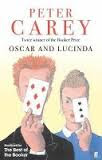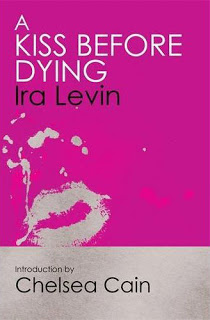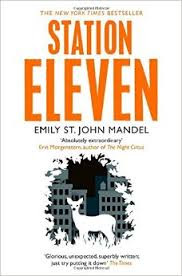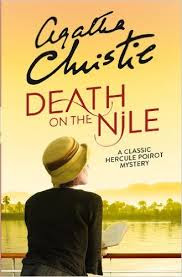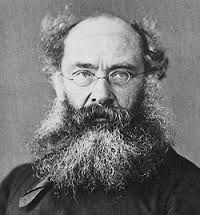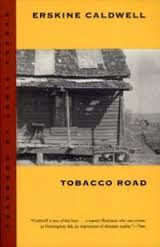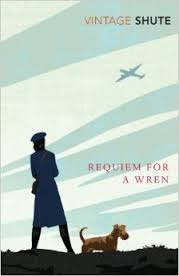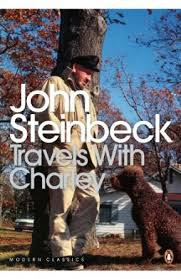
Time for the annual review of what I read this year – and guys, it’s big news, because for the first time ever I actually read more books by women than men this year. Admittedly this is because in a fit of despair I did some major re-reading, mostly Jane Austen and of Nancy Mitford, who are always very cheering. However! It’s still something: 33 of the 60.
Best of the year is obviously lead by Austen. But it’s hardly fair to put her in the race, like running a race horse against chickens. So the best of the rest: the quarter from Elena Ferrente of MY BRILLIANT FRIEND, THE STORY OF A NEW NAME, THOSE WHO LEAVE AND THOSE WHO STAY, and THE STORY OF THE LOST CHILD. It’s a magnificent series on a pair of friends from Naples in the early twentieth century. In a sign that it truly is the end of days, the publishers have felt it necessary to brand this major literary achievement as chick lit. I pity those who buy it as chick lit, as they will be horrified – its all about how boring your children are and how to abandon old friends who aren’t working for you anymore. REUNION by Fred Uhlman is a wonderful novella about the effect of the rise of the Nazis on a pair of high school boys; THE KNOWN WORLD by Edward P Jones is a fantastic huge story of slavery in the American South; and A NOTABLE WOMAN by Jean Lucey Pratt is a set of real life diaries covering fifty years in the life of an ordinary woman that had me blubbing in Luxor airport.
Worst of the year is I’m sorry to say THE NAKED AND THE DEAD by Norman Mailor, which is a very young man’s view of the glamour of war; the terrible MEMOIRS OF A GEISHA by Arthur Golden, which is insulting to Asian prostitutes everywhere, and OSCAR AND LUCINDA by Peter Carey, which is just misery without a purpose. Here’s the list
• OSCAR AND LUCINDA by Peter Carey
• A KISS BEFORE DYING by Ira Levin
• STATION ELEVEN by Emily St John Mandel
• DEATH ON THE NILE by Agatha Christie
• TROLLOPE by Victoria Glendinning
• TOBACCO ROAD by Eskine Caldwell
• REQUIEM FOR A WREN by Nevil Shute
• TRAVELS WITH CHARLIE by John Steinbeck
• THE YACOUBIAN BUILDING by Alaa al Aswany
• BEING MORTAL: ILLNESS, MEDICINE, AND WHAT MATTERS AT THE END by Atul Gawande
• WHEN THE DOVES DISAPPEARED by Sofi Oksanen
• A NOTABLE WOMAN: THE ROMANTIC JOURNALS OF JEAN LUCEY PRATT ed. Simon Garfield
• BOOK OF MEMORY by Petina Gappah
• DON’T TELL ALFRED by Nancy Mitford
• A SPOOL OF BLUE THREAD by Anne Tyler
• YEAR OF WONDERS by Geraldine Brooks
• HOW TO LIVE SAFELY IN A SCIENCE FICTIONAL UNIVERSE by Charles Yu
• FARENHEIT 451 by Ray Bradbury
• MEMOIRS OF A GEISHA by Arthur Golden
• THE LONEY by Andrew Michael Hurley
• THE MARTIAN by Andy Weir
• A SUNDAY AT THE POOL IN KIGALI BY Gil Courtemanche
• MARCH by Geraldine Brooks
• ALL MY PUNY SORROWS by Miriam Toews
• REUNION by Fred Uhlman
• THE ROYAL WE by Jessica Morgan and Heather Cocks
• THE DAYS OF ABANDONMENT by Elena Ferrante
• THE DISCOMFORT ZONE by Jonathan Franzen
• THE FISHERMEN by Chigozi Obioma
• MY BRILLIANT FRIEND, and THE STORY OF A NEW NAME and THE STORY OF THE LOST CHILD by Elena Ferrante
• THE END OF THE STORY by Lydia Davis
• WESTWOOD by Stella Gibbons
• AUNT JULIA AND THE SCRIPTWRITER by Mario Vargas Llosa
• MANSFIELD PARK by Jane Austen
• THE ROSIE PROJECT by Graeme Simsion
• EQUAL RITES by Terry Pratchett
• THE SECRET HISTORY by Donna Tartt
• LEAVING BEFORE THE RAIN COMES by Alexandra Fuller
• FIRE IN THE BLOOD by Irene Nemirovsky
• NORTHANGER ABBEY by Jane Austen
• AN EXPERIMENT IN LOVE by Hilary Mantel
• JERUSALEM THE GOLDEN by Margaret Drabble
• SENSE AND SENSIBILITY by Jane Austen
• DIARY OF A PROVINCIAL LADY (and its sequels) by EM Delafield
• DANCING IN THE DARK by Karl Ove Knausgaard
• THE MOVIEGOER by Walker Percy
• A HIGH WIND IN JAMAICA by Richard Hughes
• HOME by Marilynne Robinson
• UNDER THE VOLCANO by Malcolm Lowry
• PRIDE AND PREJUDICE by Jane Austen
• THE BLESSING by Nancy Mitford
• LOVE IN A COLD CLIMATE by Nancy Mitford
• THE NAKED AND THE DEAD by Norman Mailer
• THE AMAZING ADVENTURES OF KAVALIER AND CLAY by Michael Chabon
• THE PURSUIT OF LOVE by Nancy Mitford
• THE KNOWN WORLD by Edward P Jones
• WIDE SARGASSO SEA by Jean Rhys
• KITTY AND THE PRINCE by Ben Shephard
• LAKE WOBEGON DAYS by Garrison Keillor

